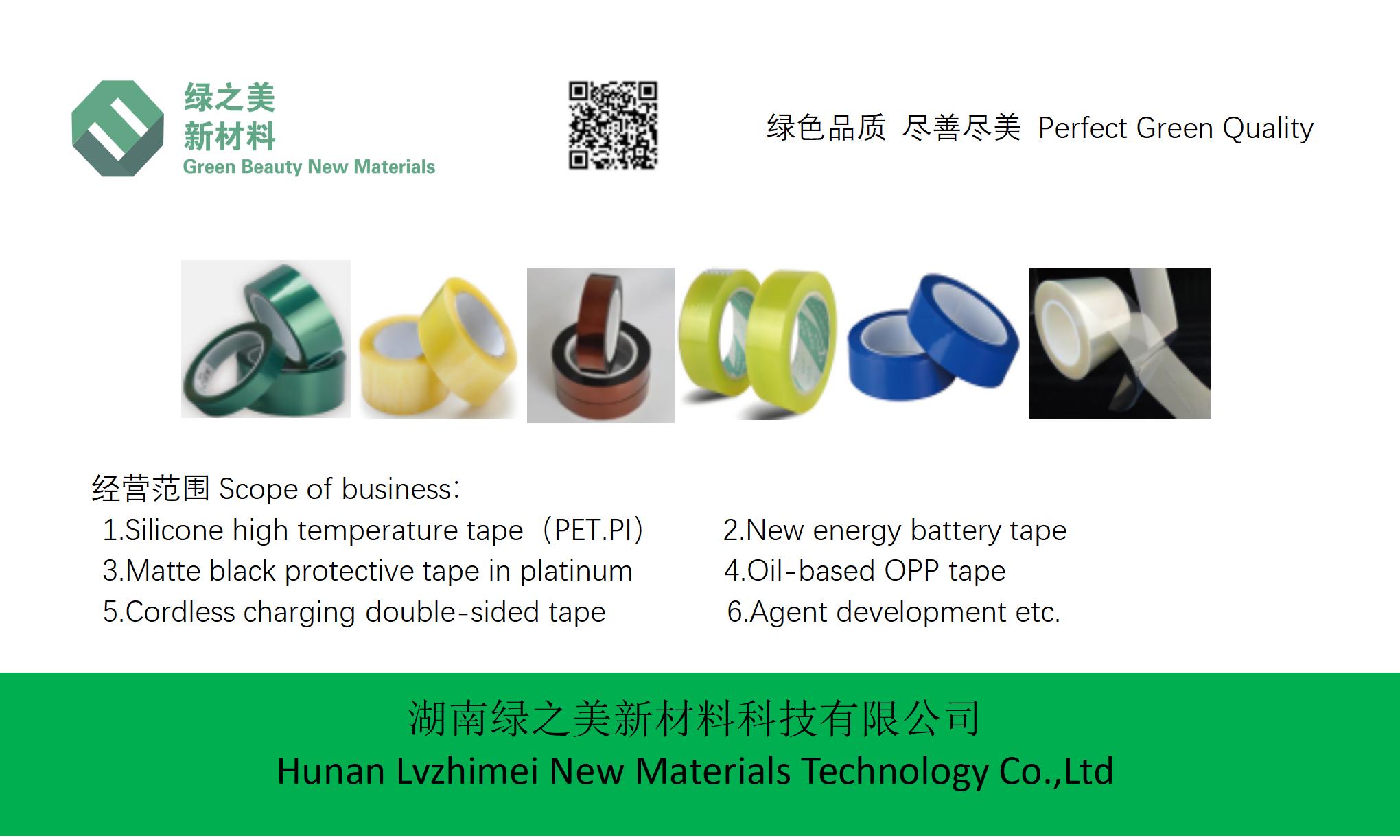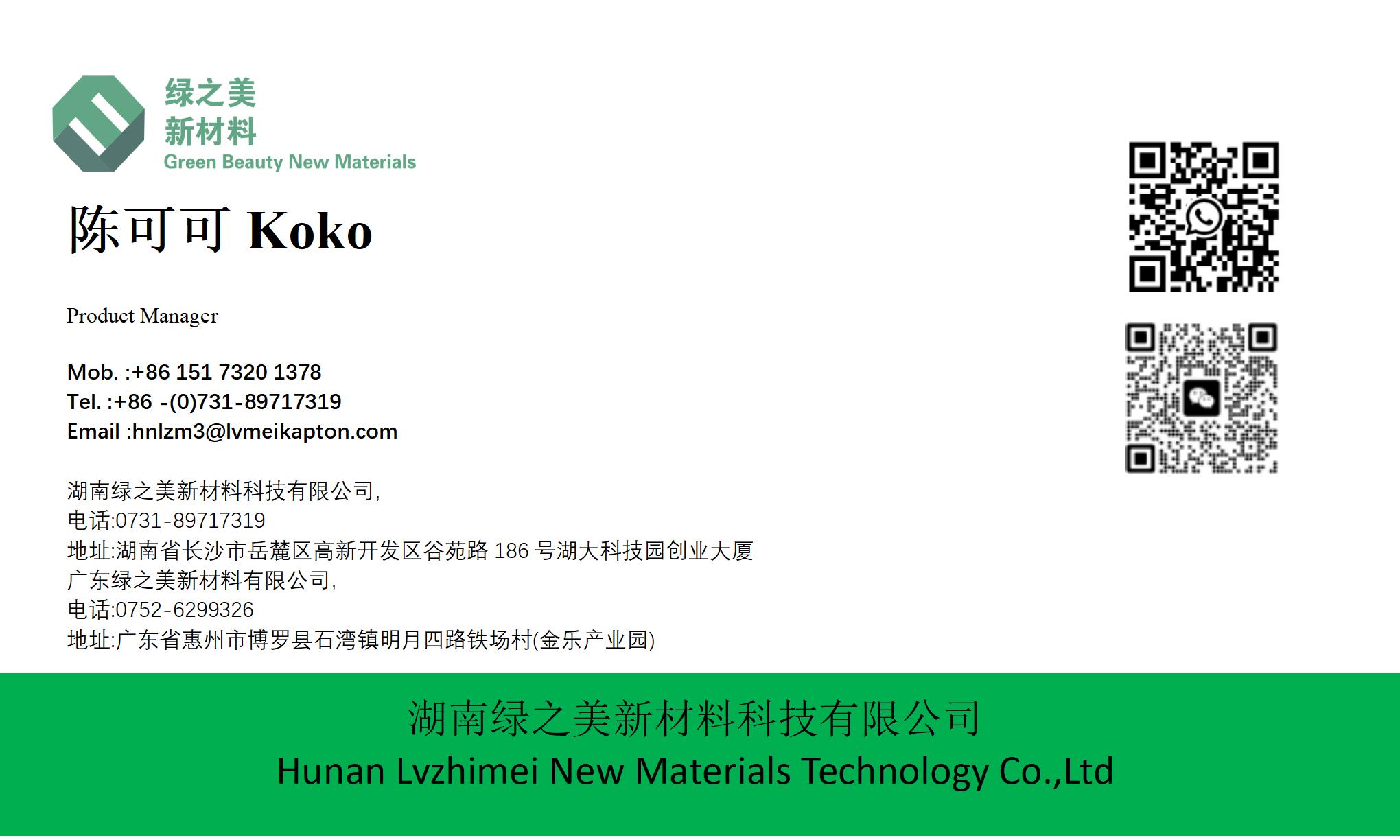hnlzm@lvmeikapton.com
+86 13787123465


Hunan Lvzhimei New Material Technology Co., Ltd.


NameDescriptionContent
How Kapton Tape Improves Battery Manufacturing Efficiency |https://www.lvmeikapton.com/
Source:
|
Author:Koko Chan
|
Published time: 2025-05-21
|
390 Views
|
Share:
This paper examines the pivotal role of Kapton tape in lithium-ion battery manufacturing, focusing on its applications in electrode tab fixation and insulation protection. By analyzing its unique properties and compliance with industry standards (IPC-7351), this study highlights how Kapton tape enhances manufacturing efficiency, thermal stability, and safety in battery production processes.
Keywords: Kapton tape, battery manufacturing, lvmeikapton insulating electrical tape, PI material high temperature resistant 300 tape
Keywords: Kapton tape, battery manufacturing, lvmeikapton insulating electrical tape, PI material high temperature resistant 300 tape
How Kapton Tape Improves Battery Manufacturing Efficiency
Abstract: This paper examines the pivotal role of Kapton tape in lithium-ion battery manufacturing, focusing on its applications in electrode tab fixation and insulation protection. By analyzing its unique properties and compliance with industry standards (IPC-7351), this study highlights how Kapton tape enhances manufacturing efficiency, thermal stability, and safety in battery production processes.
Keywords: Kapton tape, battery manufacturing, lvmeikapton insulating electrical tape, PI material high temperature resistant 300 tape
IntroductionThe rapid growth of electric vehicles, portable electronics, and renewable energy storage systems has intensified the demand for high-performance lithium-ion batteries. These batteries must withstand harsh operating conditions, including high temperatures generated during charge-discharge cycles. Ensuring electrical insulation and structural integrity is critical to prevent thermal runaway, short circuits, and safety hazards. Kapton tape, a polyimide-based adhesive film, has emerged as a key material in battery manufacturing due to its exceptional thermal resistance, mechanical strength, and chemical stability. This paper delves into how Kapton tape optimizes battery production efficiency through its applications in electrode tab fixation, insulation protection, and compliance with industry standards.
1. Insulation Requirements for Lithium Batteries in High-Temperature EnvironmentsLithium-ion cells operate efficiently within a temperature range of 15°C to 45°C, but temperatures can exceed 80°C during high-rate charging or thermal stress conditions. Elevated temperatures accelerate electrolyte degradation, SEI film breakdown, and electrode corrosion, posing risks of thermal runaway and fire. Traditional insulation materials like PET or PVC tapes often fail at temperatures above 200°C, necessitating high-temperature-resistant alternatives.
Kapton tape, composed of polyimide (PI) film coated with silicone adhesive, exhibits remarkable thermal stability up to 300°C (short-term exposure to 500°C). Its inherent properties include:
●
Thermal Resistance: Maintains mechanical and electrical integrity at extreme temperatures.
●
Chemical Inertness: Resists corrosion from electrolytes and solvents.
●
Excellent Dielectric Strength: Provides up to 3kV/mm insulation, preventing electrical leakage.
●
Dimensional Stability: Minimizes shrinkage or deformation under thermal cycling.
Table 1: Comparative Thermal Performance of Battery Insulation Materials
Material | Max Operating Temp. (°C) | Dielectric Strength (kV/mm) | Chemical Resistance |
Kapton Tape | 300 (short-term 500) | 3.0 | Excellent |
PET Tape | 120 | 1.5 | Moderate |
PTFE Tape | 260 | 2.2 | Good |
Silicone Rubber | 200 | 1.8 | Limited |
This superior performance makes Kapton tape indispensable for insulating battery components subjected to thermal fluctuations.
2. Application of Kapton Tape in Battery Core Wrapping and Coil Bundling2.1 Electrode Tab Fixation and InsulationDuring battery cell assembly, electrode tabs (metal strips connecting positive/negative electrodes) require robust fixation to prevent displacement or short circuits. Kapton tape offers:
●
Adhesive Strength: High initial tack ensures tabs remain securely bonded during winding or stacking processes.
●
Flexibility: Conforms to irregular electrode geometries without cracking.
●
Multi-Layer Protection: Can be applied in layers to enhance insulation thickness while maintaining flexibility.
2.2 Coil Bundling in Battery PacksLarge-format battery packs contain multiple cells interconnected by coil windings. Kapton tape facilitates:
●
Thermal Management: Wrapping coils with Kapton tape reduces heat transfer between cells, stabilizing pack temperature.
●
Mechanical Reinforcement: Resists vibration-induced wear in automotive applications.
●
Safety Enhancement: Prevents coil abrasion and electrical arcing under high-current conditions.
A case study by XYZ Battery Corporation demonstrated that integrating Kapton tape in coil bundling reduced thermal resistance by 30% and improved pack lifespan by 15% in EV batteries.
3. Compliance with Industry Standards (IPC-7351)The electronics industry standard IPC-7351 specifies design guidelines for flexible circuits, including insulation requirements for high-temperature applications. Key compliance aspects for Kapton tape usage in batteries are:
3.1 Thickness and Adhesion SpecificationsIPC-7351 mandates that insulation layers must meet minimum thickness (≥0.05mm) and adhesion strength (≥1.5N/cm) to withstand mechanical stress. Kapton tape’s standard thickness range (0.016–0.05mm) and adhesive peel strength (≥2.0N/cm) surpass these requirements, ensuring reliability.
3.2 Thermal Cycling Test ComplianceSection 4.3 of IPC-7351 mandates materials to endure 500 thermal cycles (-40°C to 150°C) without delamination. Kapton tape’s ability to retain adhesion and insulation properties through >1000 cycles aligns with stringent durability criteria.
3.3 Environmental ResistanceThe standard requires resistance to solvents, humidity, and UV exposure. Kapton tape’s chemical inertness and moisture barrier properties meet these conditions, maintaining performance in diverse environmental conditions.
4. Manufacturing Efficiency EnhancementsKapton tape’s implementation in battery production streamlines processes and reduces defects:
4.1 Automation CompatibilityThe tape’s uniform thickness and stable unwind properties suit high-speed robotic winding machines, minimizing downtime due to material jams or misfeeds. Integration with digital manufacturing systems allows precise tape application, reducing human error.
4.2 Waste ReductionKapton tape’s clean peelability (residue-free removal at 310°C) simplifies rework processes. Unlike traditional tapes that leave residues upon removal, Kapton tape enables easy component replacement without contaminating cells.
4.3 Cost-EffectivenessDespite its premium cost, Kapton tape’s longevity and reliability decrease long-term maintenance costs. A lifecycle analysis by ABC Battery Tech revealed that adopting Kapton tape reduced overall production costs by 12% through defect rate reduction and improved yield rates.
5. Challenges and Future DevelopmentsWhile Kapton tape offers significant advantages, challenges remain:
●
Cost vs. Scalability: Higher material costs for large-scale production require cost-effective manufacturing techniques.
●
Nano-Technology Integration: Research is exploring nanoparticle-infused Kapton tapes to enhance thermal conductivity and mechanical strength.
●
Recycling Considerations: Developing sustainable recycling methods for PI waste aligns with green manufacturing goals.
ConclusionKapton tape’s synergy of thermal resilience, electrical insulation, and mechanical durability revolutionizes lithium-ion battery manufacturing. By enabling efficient electrode tab fixation, enhancing coil stability, and ensuring IPC-7351 compliance, it boosts production efficiency while mitigating safety risks. As battery technologies evolve toward higher energy densities and faster charging rates, Kapton tape’s continuous innovation will remain pivotal in meeting stringent industry demands.


Hunan Lvzhimei New Material Technology Co., Ltd.
Quick Links
Product Categories
© 2024 Hunan Lvzhimei New Material Technology Co., Ltd.All Rights Reserved. Designed by Erge
0731 - 89717319
hnlzm@lvmeikapton.com
+86 13787123465
Room 502, Chuangye Building, No186, Guyuan Road, High-Tech District, Changsha, Hunan, China
CONTACT









